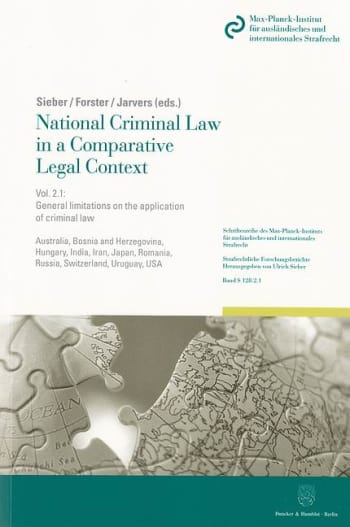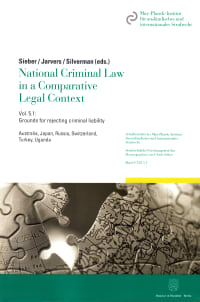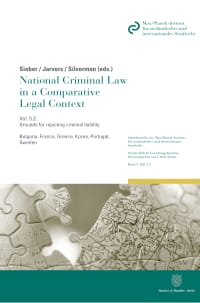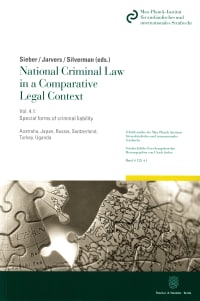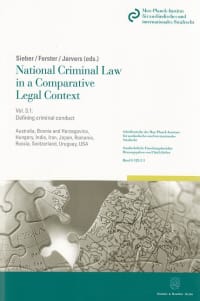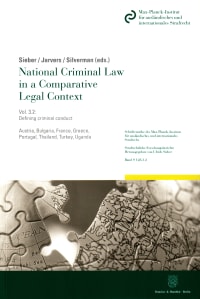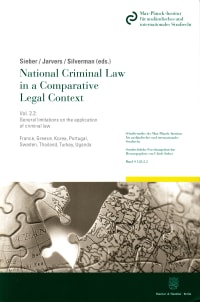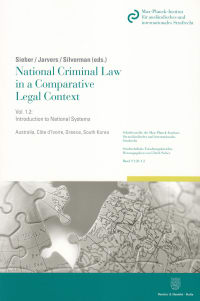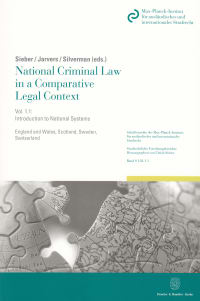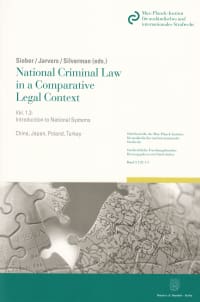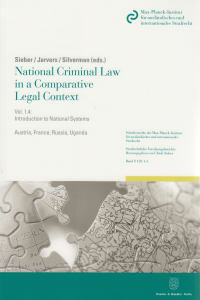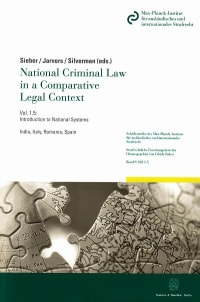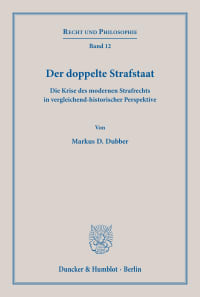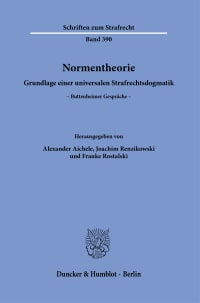Vol. 2.1: General limitations on the application of criminal law: Principle of legality – Extraterritorial jurisdiction. Australia, Bosnia and Herzegovina, Hungary, India, Iran, Japan, Romania, Russia, Switzerland, Uruguay, USA
Beschreibung
This publication is part of the International Max Planck Information System for Comparative Criminal Law, a project at the heart of the comparative legal research of the Max Planck Institute for Foreign and International Criminal Law in Freiburg/Germany. A primary objective of this project is to develop a universal meta-structure of criminal law that can serve as the basis for the organization of material, enable systematic comparisons, and further the development of an international criminal law doctrine. This meta-structure is also a prerequisite for analyzing the various approaches taken around the world to shared criminal law-related problems, identifying general legal principles, and drafting international model codes. A second goal of the project is to provide global access by means of a computer-based expert system to data from the participating legal systems in the form of country reports organized on the basis of the aforementioned universal meta-structure.
Towards these ends, a pilot project was carried out to analyze, structure, and present the General Part of the criminal law in twelve legal systems. The results were published in five volumes from 2008 to 2010 (in German). In the meantime, the number of legal systems included in the study has grown considerably, with the help of contributions from researchers at the Max Planck Institute as well as from external research partners. First fruits of this expansion are presented here, with the publication of reports from an additional eleven countries: Australia, Bosnia and Herzegovina, Hungary, India, Iran, Japan, Romania, Russia, Switzerland, Uruguay, and the United States of America.
Inhaltsübersicht
C. Concept and systematization of the criminal offense
1. Concept of the criminal offense: Definitions, formal and substantive concepts of the criminal offense – Division of crimes into categories
2. Systematization of the criminal offense: Introduction – Development and current state of prevailing opinions on generally applicable requirements of criminal liability – Modes of analyzing the general requirements of criminal liability
D. Objective aspects of the offense
1. Definition and elements of the objective aspects of the offense
2. Offender: Location and text of treatment – Scope of principle
3. Act
4. Crimes of omission: Difference between acts and omissions – Specific duties to act, duties of care – Special issues with regard to criminal liability in the context of crimes of omission – Special issues in the sentencing of crimes of omission
5. The concept of »object of the act«
6. The concept of »consequences of the offense«
7. Causation requirement and related rules governing attribution of criminal liability
8. Objective aspects of offenses of negligence
E. Subjective aspects of the offense
1. Definition and elements of the subjective aspects of the offense
2. Intent: Concept and elements of offense to which intent requirement applies – Types
3. Subjective side of negligence offenses: Concept and elements of offense to which negligence applies – Forms / degrees of negligence
4. Reduced intent or negligence requirements
5. Mistakes and misapprehensions: Factual mistakes – Mistakes of law
Andere Titel dieses mehrbändigen Werkes
Bücher aus denselben Fachgebieten
Kontakt
-
+49 30 / 79 00 06 - 0
-
Bestellinformation
-
Versandkostenfrei innerhalb Deutschlands.
-
Für Kunden aus EU-Ländern verstehen sich unsere Preise inklusive der gesetzlichen Mehrwertsteuer und – außer bei digitalen Publikationen – zuzüglich Versandkosten. Für Kunden aus Nicht-EU-Ländern verstehen sich unsere Preise als mehrwertsteuerfrei und – außer bei digitalen Publikationen – zuzüglich Versandkosten.
-
-
Newsletter
